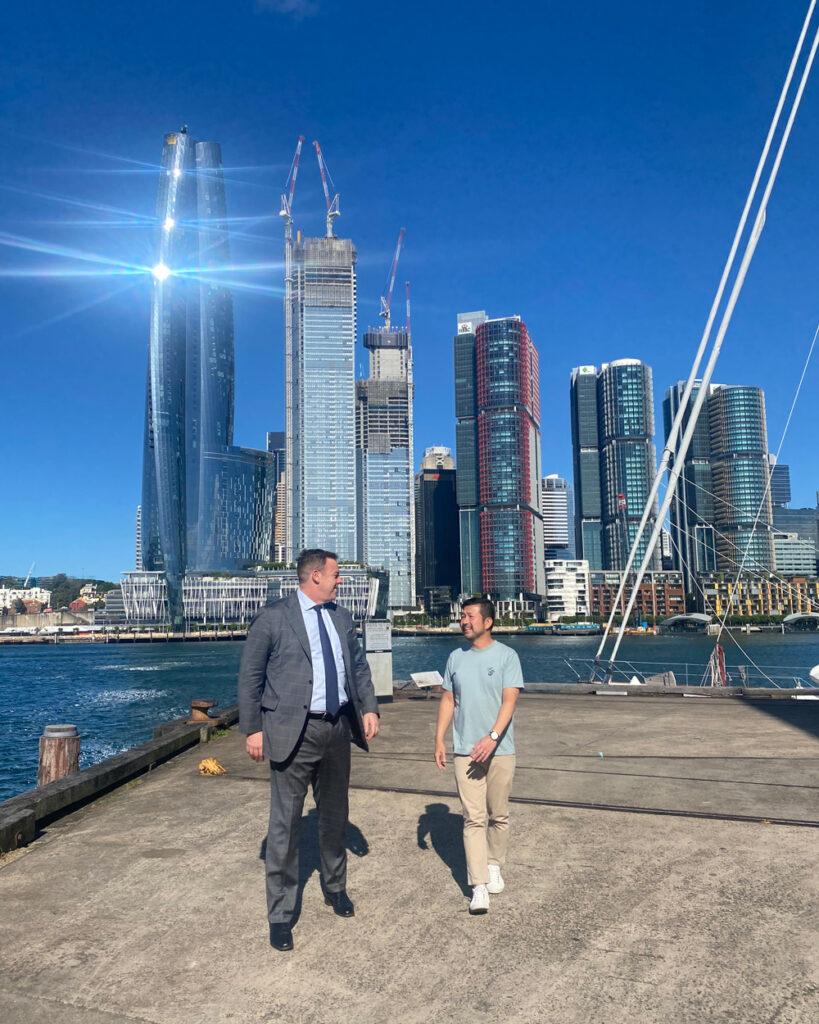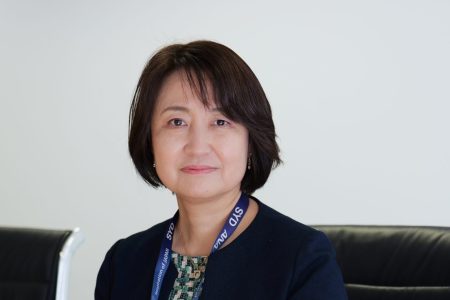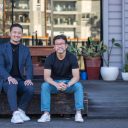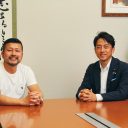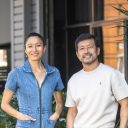NSW Senior Trade and Investment Commissioner for North Asia
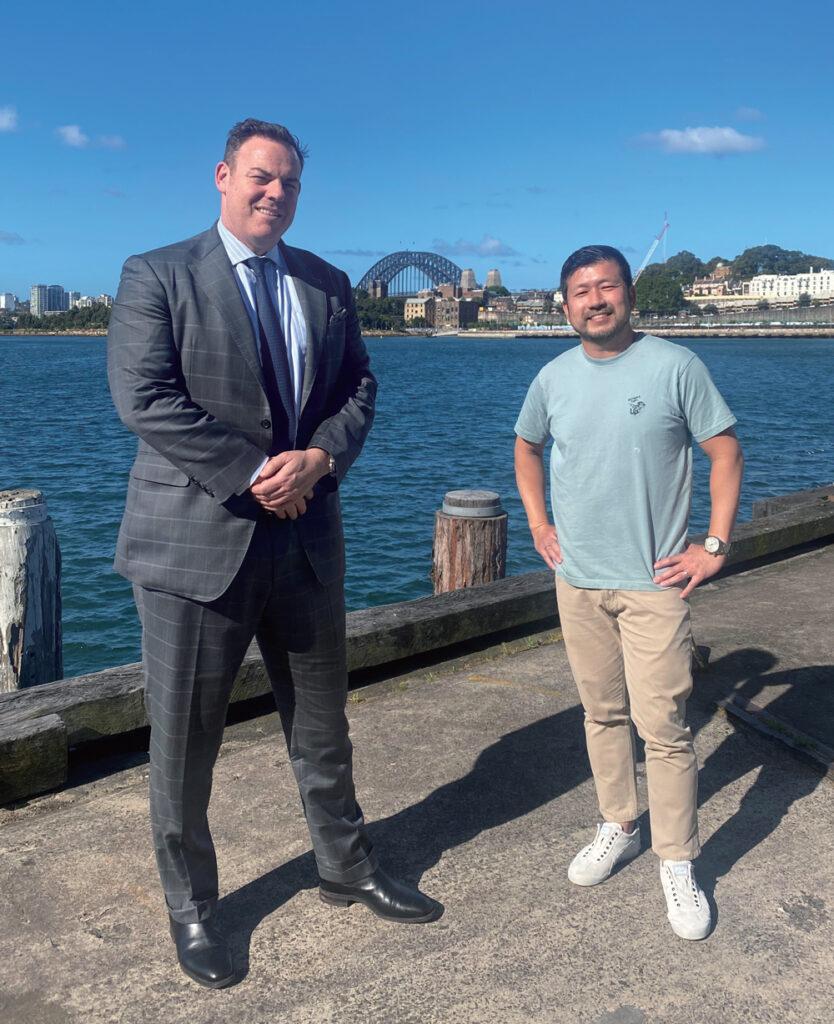
In Conversation Vol.20
This special feature sees Yoshinori Sakuno, the founder of cross-cultural marketing firm, doq® and Chairperson of Nichigo Press, in conversation with various business personalities. In this edition, he speaks to Michael Newman, NSW Senior Trade & Investment Commissioner for North Asia.
Editorial supervision and photography : Kazuya Baba
PROFILE

Michael Newman
After working for a Japanese brokerage firm in Sydney, Newman relocated to Japan in 1997 to work for a brokerage firm in Japan. Then, a major European bank headhunted him to run their sales desk in Japan. Having held positions such as Head of Sales for HSBC, Country Manager for Macquarie Capital Securities Japan, and founder of his own company, he now serves as the NSW Senior Trade and Investment Commissioner for North Asia (Japan and Korea).
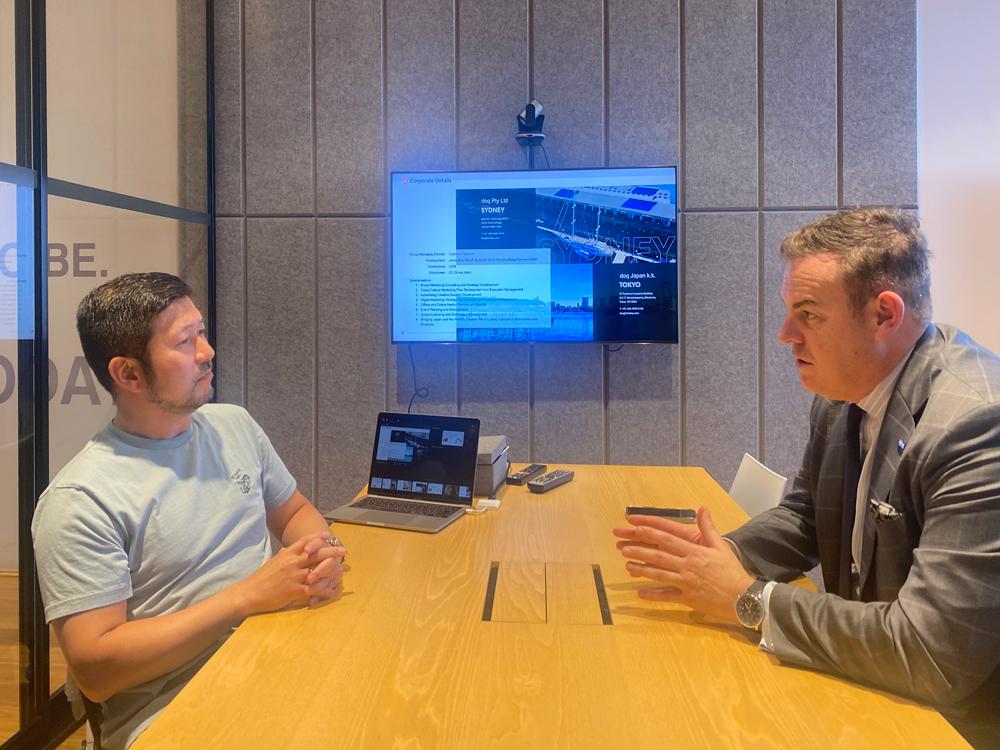
SAKUNO: You are currently based in Japan as the NSW Senior Trade and Investment Commissioner for North Asia. Could you share with us what piqued your interest in Japan, as well as your journey that led you to work in Japan?
NEWMAN: I first came to Japan about 40 years ago, in 1983. My father visited Japan for business, and the rest of the family enjoyed a trip around Japan. While I was there, I fell in love with the culture. When I returned to Sydney, I was lucky that my high school had Japanese as an elective language. I studied Japanese for five years in high school. Then, I did two years alongside my Bachelor of Economics at the Australian National University (ANU), which also included a year of exchange at Hitotsubashi University in Japan.
SAKUNO: What did you like about Japanese culture?
NEWMAN: Japan’s culture has been built over thousands of years. When you visit places like Kyoto, you see women in kimono and some men in hakama. It almost feels like you’ve stepped back in time, and there’s a certain elegance. Everything felt different and special. The way the Japanese embrace their old and existing culture very much remains a fabric of Japanese society, especially around respect and duty of honour. That really resonated with me.
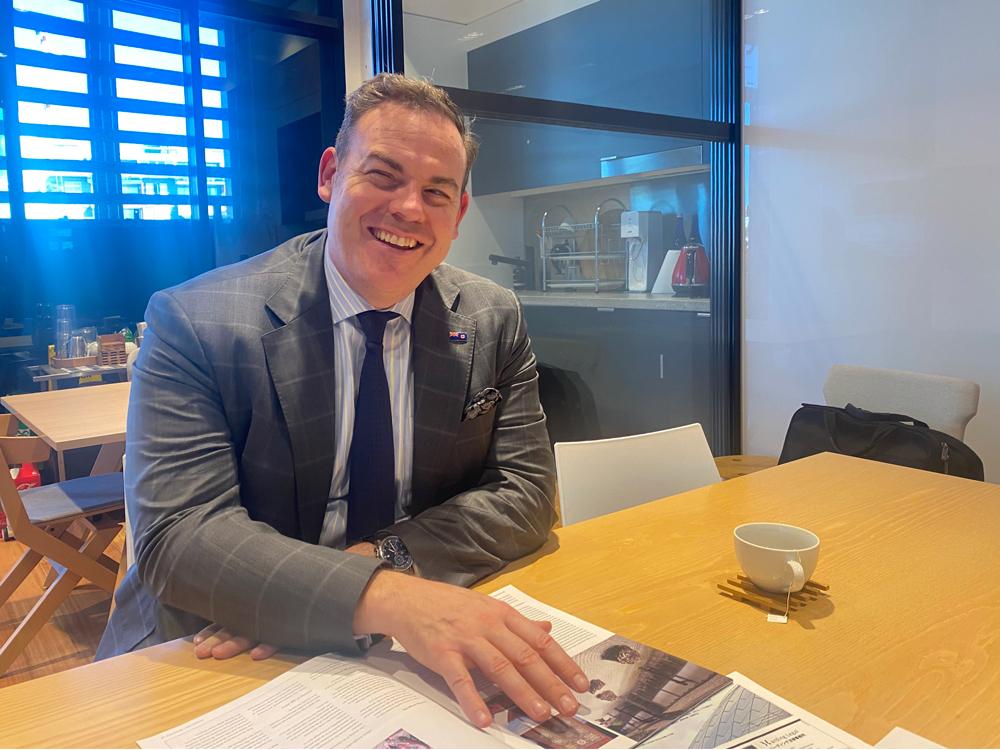
After graduating from university, I took a job in Sydney with a Japanese brokerage house. Everything was hands-on there as they were relatively small back then. I did everything, whether it was index futures, government bonds, Japanese or Australian equities fund management. My experience there helped me learn to get ahead.
In 1997, I moved to Japan with another Japanese brokerage firm before being headhunted to run the Japanese sales desk for a European bank. Then, when I was 28 years old, our bank advised the Renault side of the Nissan merger. I ended up being the main contact person for our headquarters back in Amsterdam to work with Nissan. From there I moved to HSBC and further to Macquarie Capital Securities Japan in 2007. That’s how my investment banking career progressed. I left Macquarie in 2015 to set up my own consultancy to be a kakehashi (bridge) between Japan and Australia, and COVID-19 hit. Australia was in lockdown when the New South Wales government was looking to expand their offshore network, and the naiyou (details) of the job description were very close to what I was already doing, albeit I would be able to have a lot more resources to do it. That’s how I came to work for the NSW government in Tokyo.
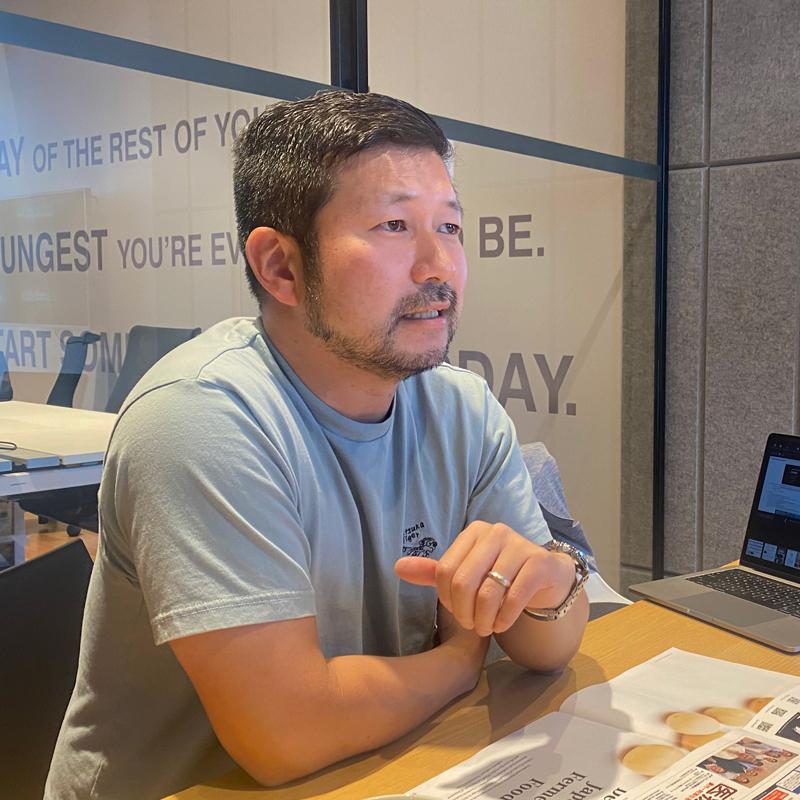
SAKUNO: I now understand how you became interested in Japan. You have extensive experience in the finance industry, what motivated you to pursue a career in this field?
NEWMAN: It was a family business. My father had been in finance for a long time, so we would often discuss finance at the dinner table. I understood markets from an early age.
SAKUNO: That’s interesting because my father like you, graduated from Hitotsubashi University, and worked in finance. He worked for Mitsui Sumitomo Bank for around 40 years, and like your family, we had countless conversations over the dinner table about finance. Unlike you, I didn’t pursue it as a career.
NEWMAN: Having a background in finance has proved to be incredibly useful. Investment NSW is the commercial arm of the NSW government, and our job is to source trade and investment. The advantage of having 25 years in investment banking is that you have a deeper understanding about the way companies operate. It helps us learn how we need to approach and understand a company’s business style to make their investments more effective.
SAKUNO: What was the turning point in your career and what factors have contributed to your success today?
NEWMAN: I think the turning point was when I joined Macquarie in Japan back in 2007. The company was, and arguably still is, a trailblazer. Macquarie would probably be best described as the world’s largest private equity firm. The culture was very much an entrepreneurial spirit. The senior management, all the way to the CEO, always encouraged such a spirit since they wanted to put their faith in the people they led. As long as you were accountable for what you wanted to do, the company would generally support you. One early morning, I knocked on the hotel door of our CEO when he was in Tokyo to discuss an opportunity in the medical space. This investment jumped tenfold in the following five years, and I received two Macquarie Awards for my efforts. I worked with different teams for the series of transactions, and this showed the importance of collaborating with the right teams to achieve great results. Working at Macquarie instilled in me the value of developing a strong conviction in order to effectively persuade others and drive continuous improvement in business practices.
SAKUNO: Do you have any life experiences that have significantly impacted the person you are today?
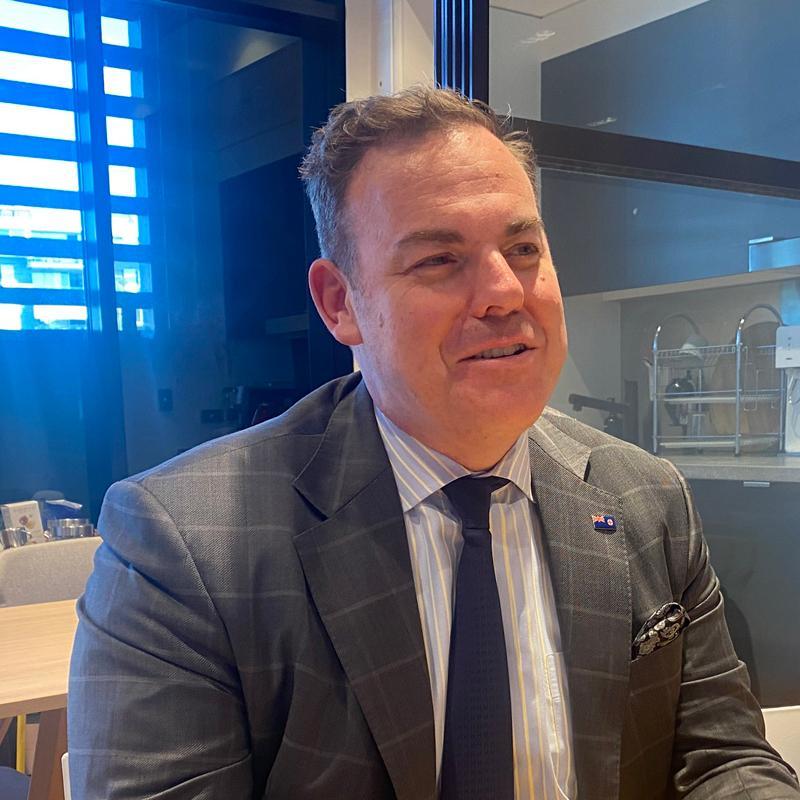
NEWMAN: I often like to say to people that ‘experience is a very hard teacher.’ You are handed the test first and get the lesson afterwards. The Great East Japan Disaster in 2011 was undeniably the most impactful experience of my life. When the earthquake struck, I was in Tokyo, and it really brought to bear how people cope in a true crisis. I was on the 20th floor of our office building in Tokyo that had just been built before the tough earthquake regulations were mandated. It was a surreal experience. Parts of the ceiling collapsed, and the photocopier was dancing across the floor. The earthquake almost felt like walking from one end of the Manly ferry to the other, during a very rough swell.
To ensure everyone’s safety, the management team worked together to evacuate the staff before we left the building. Amidst the chaos, many people were in tears and gripped by fear. I guess the upshot of that is that it revealed how people behave in times of great stress. This experience revealed a level of resilience within me that I never knew existed. When facing stressful situations, I often reflect on how I managed through the earthquake and remind myself that I coped well during that time. This helps put other challenges into perspective and helps to make challenges seem far less stressful or insignificant.
SAKUNO: I was 17 years old and living in Kobe when the Great Hanshin earthquake struck in 1995. My high school was destroyed, and my house was leaning more than four degrees, so it was no longer liveable. As a survivor, I recognize that the earthquake was a profound learning experience.
NEWMAN: You end up valuing life because you understand that anything could happen anytime. After the Great East Japan Earthquake, we saw people who really started to live their lives. I met people who said, “I just went and bought Harley Davidson because what if I died and missed out on buying the things I always wanted.”
SAKUNO: What is your career vision?
NEWMAN: I always aim to be consistent and make a positive difference while upholding the highest ethical standards. Regardless of my role, I want to make sure that we excel in building authentic relationships with customers, inspiring trust that motivates them to do business with us. Building trust in Japan, as you know, takes time. However, once established, it can be a powerful asset. Also, I believe in the power of compounding, where the more you invest, the greater the returns. I apply this concept to my career by constantly seeking opportunities for growth, refining my mindset, and striving to stay ahead of the curve. By consistently investing in yourself, you can outpace your competitors and achieve greater success over time.
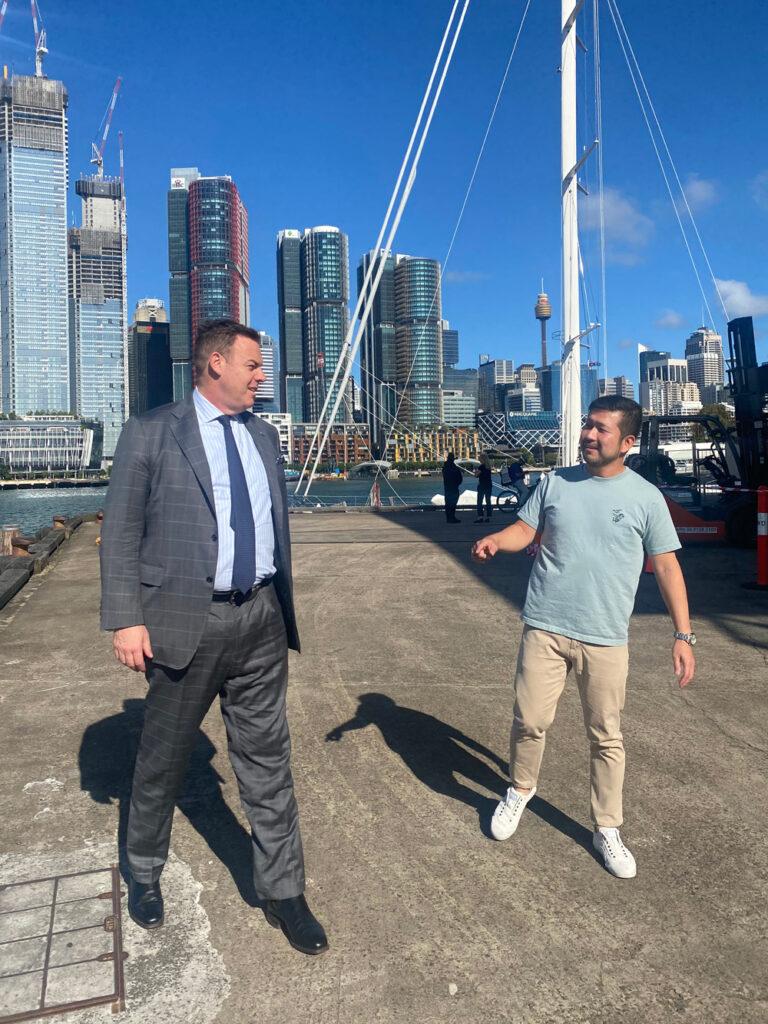
“No two days are ever the same”
SAKUNO: Let’s move on to hear about your current role. As a representative of the NSW government in Japan and a successful leader in the finance industry, what does a typical day look like for you, and what do you consider to be an important task during that time?
NEWMAN: Sadly, when you wake up at 4:45 am., for 30 years, your body clock is just stuck in that time. I’m an early riser. I typically spend the first two hours of my morning while everyone else is asleep in the house, reviewing financial markets to identify any changes that may impact our business operations. This dedicated time allows me to analyse market flows and assess how they may affect our day-to-day operations. Then, in the morning we discuss with the team how this could affect potential live deals or future deals. No two days are ever the same. Everything else from there is just dependent on what we’re working on, and that can vary. For example, last week we had the Sydney Fish Market come to Tokyo and took them through Toyosu Market to help them understand how it operates. Our team in Tokyo and Seoul spend most of the day out of the office engaging with customers and looking for opportunities to help drive investment and trade for our state.
To help make our day impactful, I prioritise empowering our team with shared objectives and encourage them to utilize their smarts and experience in working with clients. Micromanagement is not necessary, as we have built a strong level of trust within the team. This approach is foundational in our daily work. The second is that each team member has a different strengths. We all gain from sharing our relative comparative advantages. There’s no competition, and we always try and find new ways to learn.
SAKUNO: What do you think are the biggest opportunities that NSW has with Japan?
NEWMAN: I think hydrogen, ammonia and clean energy is going to be the biggest way that New South Wales and Japan can collaborate. It’s essential that we recognize the significance of our alliances and never underestimate their value. Japan has been a trusted and loyal friend of NSW, and we must continue to nurture and strengthen our relationship with them. A lot of our exports to Japan from NSW are coal, both coking and thermal. If we’re going to decarbonize, we need to work with Japan to see how we can help them transition to clean energy. In NSW, a lot of the infrastructure has been built to support a larger population, which means that if you were to build large-scale hydrogen or ammonia in NSW, there is access to deep water ports, electrical and water infrastructure and tens of thousands of experienced workers who’ve been working in heavy industry for decades. This helps to reduce the risk of moving into these large clean energy projects because a lot of the surrounding infrastructure is already in place, which means that it’s cheaper to do it in New South Wales. We’re very well progressed with trying to get Japanese corporate and government entities to consider NSW to underwrite Japan’s future energy security.
SAKUNO: National security and resources are really the fundamentals and extremely important factors for Japan and New South Wales. While it’s evident that Japan and NSW enjoy a robust relationship to people working in this field, I think there’s room for further development to make the relationship more obvious to the general public in both countries. You and I can probably work harder in this area.
NEWMAN: Yes, absolutely. The most important thing I think Japan and NSW have in common is values. Values really do underpin relationships. I always try to get across to people within our institution that the more cultural aspects there are in relationships, the more we underwrite trust. For instance, we had the New South Wales Waratahs rugby team sign a Memorandum of Understanding (MoU) with the Fukuoka Prefecture. There are going to be numerous wonderful events between New South Wales and Japan, where we’re going to get high school students to play each other in sports. We’ve also seen the notable victories by the Brave Blossoms since the 2015 World Cup. We’re therefore using sports diplomacy as a leverage point to get Japanese students at young ages to start thinking more about international lifestyles.
SAKUNO: That’s great.
NEWMAN: Before the COVID-19 pandemic, 80,000 Japanese high school students used to come to NSW on shugakuryoko (school trip). Dual degrees between universities in Japan, including two years of study in Japan and two years in Sydney, allow students to engage more with people in Japan and NSW. It’s fantastic to witness these engagements taking place, and I believe they can serve as a springboard for generating even greater excitement and interest in the future. Also, I would really love more Japanese tourists to visit Australia for longer. It’s challenging because the salaryman culture limits their ability to stay for an extended period. In Japan, you look at the websites of major travel agencies displaying Spain trips for five days, four nights. Unfortunately, you spend a day and a half on the aircraft and maybe three on the ground, which makes it difficult for one to decompress.
SAKUNO: How about suggesting NSW as a remote workplace because we only have a one-hour time difference?
NEWMAN: Good idea. NSW would be excellent for individuals who want to work remotely as well as companies that want to expand, including start-ups. If companies are doing very similar business models, it makes sense that you collaborate on research and development (R&D). Collaboration on R&D also allows access to two end markets as opposed to one, which then becomes a lot more attractive to a venture capitalist.
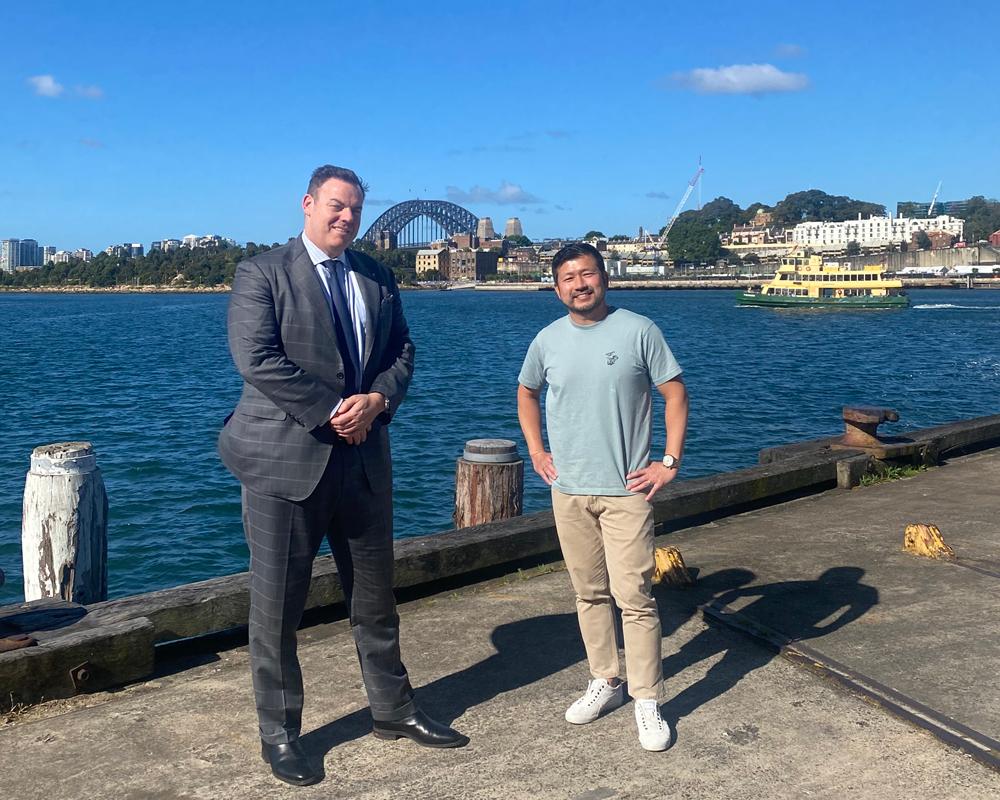
“It’s not about finding customers for your product, but finding products for your customers”
SAKUNO: You’ve worked in Japan for a considerable amount of time. Can you please share with us your most challenging and enjoyable experiences?
NEWMAN: To be honest, the most challenging thing for me very early on was being able to speak Japanese fluently. I’d done six or seven years of study, so all the bunpo (grammar) and tango (words) were inside my head, but I didn’t really have a place to speak and put all the words together. Luckily, when I studied at Hitotsubashi University, I lived in an all Japanese dormitory where no one really spoke English very well. After spending about six to eight weeks at the Japanese dormitory, I found that my Japanese language skills had improved significantly. It was an immersive experience that helped me gain confidence and proficiency in the language.
One of the challenges when I started working as an Australian in Japan was understanding where we were in the pecking order in Japanese financial services. I was working for Macquarie at the time, and the idea that Macquarie was going to be the lead manager on a deal for Toyota or Panasonic was highly unlikely because of the decades of relationships that had been established with major financial institutions. The good thing about this challenge was that it made us think differently about how to adjust our business and understand the culture in Japan. To do this successfully, we realised that we needed to focus where no one else was focusing on in the market. I concentrated on a lot of small midcap companies, which none of the big bulge bracket investment banks were targeting. When you’re dealing with chushokigyo (small and medium-sized enterprises), if you find the right ones, they eventually become ootekigyo (big enterprises). If they become ootekigyo and you’ve helped them during their toughest times, you can build long long-term, sustainable relationships where you are the key relationship owner. We ended up owning a lot of this space with very little competition. You just need to think outside the box as to how you can really help your business thrive in Japan because building relationships takes time.
SAKUNO: What’s your point of view on the differences in leadership style and culture between Japan and Australia?
NEWMAN: Having worked for Japanese companies in the past, I would say that they’re very structured and regimented in the way they operate. Aussie companies tend to have more flexibility and risk appetite.
For us, in terms of culture here, as a trade and investment office, I would hope that we are always trying to do things differently from our competitors and that we are going out of our way to make sure we understand our clients, the way that they do business and help facilitate in full knowledge what they want to do and see whether we can help match the service. I always say, “it’s not about finding customers for your product, but finding products for your customers.”
SAKUNO: Is Japan an attractive place for Australians to work?
NEWMAN: Japan is a safe place to live with wonderful people who are polite. There’s so much to do here. Great restaurants, bullet trains, and the list goes on. In terms of working here, I think it’s fantastic. Due to the aging population, Japan has a definite need to get more foreign workers to stop the long-term decline in the workforce.
When I was in investment banking, we often used to joke about whether Japan should lower income taxes to attract more foreigners. To get the right kind of balance of getting Japan’s population to stop declining, taxes make a lot of difference. I think that if we had Japanese corporate and income taxes that were closer to Hong Kong or Singapore, we would find that Japan would quickly become the global capital of Asia. Japan has to have more confidence that it has so much to offer to foreigners. This would lead to cities like Tokyo or Osaka exploding in population and foreign investment. Purely altruistically, it’s a question of lowering taxes. I mean, you could raise the consumption tax, which is already the largest component of the Japanese government tax intake, but if you got more and more foreigners to set up here, you would find that people would get paid more. So even if you pay a lower tax rate, you might not necessarily pay less tax, because wages would rise in a way that would be sustaining the economy. Let’s face it, inflation does exist in Japan, but it tends to be done by shrinking the size of the product at the same price.
SAKUNO: Yeah, that’s right.
NEWMAN: Even without all of that, Japan is an attractive place to work. I’ve worked here for 22 years now, and I call it home.
SAKUNO: Great. Please share your advice for our Nichigo Press readers regarding leadership and career development in Japan and Australia.
NEWMAN: The absolute most important one is to keep Japanese executives in Australia for longer. I think that the three-year cycle turnover is too quick. The new leader takes a year to build a relationship, the second year to try and nurture it, and then in the third year, they prepare to leave and hand over to the next person. I think that given there are so many large-scale opportunities, especially in clean energy, it would make a lot of sense to keep some executives in the country for a decade to further build upon those relationships. That would be one of the most important message, say, to the Japanese companies in Australia and for the Aussies the other way.
Being in Japan for so many decades, one of my challenges or wishes is still like yours. How do we build the bridge between Japan and Australia and maintain the momentum and get the younger generations to see through all of this and embrace change?
Where I see the world going, there are a lot of challenges out there. Financial challenges, rising interest rates and rising raw material prices. We, therefore, want to pick reliable trading partners. The war in Ukraine has exacerbated the idea that your supply chains could be at risk at any time if you don’t pay attention. That’s why I’m so invested in Japan and Australia, and more importantly, New South Wales. But that doesn’t come through luck, it comes through proper engagement.
SAKUNO: Thank you, Mike, for sharing such informative insights. I really enjoyed speaking with you, and I appreciate the knowledge you shared with us.
